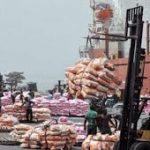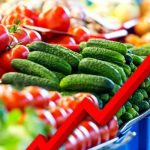As Nigerians await the promised implementation of the import duty waiver for rice and other staple foods, industry stakeholders are urging the government to extend the deadline beyond December 2024. Both the Organised Private Sector and the Rice Processors Association of Nigeria (RPAN) voiced their concerns, noting that food prices have not decreased since the government announced the policy in July.
The waiver, intended to alleviate Nigeria’s food security challenges by making essential items more affordable, has yet to benefit any importer or company. Announced on July 15, 2024, the program aims to run through December 31, 2024, with a focus on staple commodities such as maize, brown rice, wheat, and millet.
Despite inflation rates soaring to 32.7% and food inflation hitting 37.77% in September, the waiver scheme has struggled to take off. The Federal Government aimed to lower import duties and value-added taxes to facilitate food imports and reduce consumer prices. However, the lack of implementation has left just three months for potential beneficiaries to take advantage of the program.
Dr. Andy Ekwelem, Director-General of RPAN, emphasized the need for an extension, stating that shipping times for food imports necessitate more time to effectively roll out the waiver. “Considering the duration of time it takes for a ship to arrive in the country, there would be a need to extend the time frame,” he said. He acknowledged uncertainty around the final guidelines for the waiver’s implementation but reiterated the urgency for action to prevent a food crisis, especially as rice prices continue to escalate.
In response to the delays, the Nigeria Customs Service (NCS) indicated they are prepared to implement the policy, with Comptroller-General Adewale Adeniyi instructing officials to commence enforcement. Abdullahi Maiwada, NCS’s National Public Relations Officer, underscored the commitment of the service to effectively execute government fiscal policies.
The National President of the Nigerian Association of Chambers of Commerce, Industry, Mines and Agriculture (NACCIMA), Dele Oye, also called for an extension, advocating for a collaborative approach to address underlying economic conditions. “Such an extension would allow for a more significant impact on food prices and give stakeholders time to adjust,” he stated.
Dr. Femi Egbesola, President of the Association of Small Business Owners of Nigeria, highlighted the pressing need for government interventions to combat rising food prices, warning that failure to implement the waiver could exacerbate poverty and hunger in the country.
Gabriel Idahosa, President of the Lagos Chamber of Commerce and Industry, expressed frustration over the lack of market evidence indicating the policy’s effectiveness. “There is no evidence in the market of the effects of that policy announcement,” he noted, urging the government to clarify the reasons behind the delays.
Segun Ajayi-Kadir, Director-General of the Manufacturers Association of Nigeria, acknowledged that the impact of the waiver should start to become evident by November. However, he cautioned stakeholders against exploiting the waiver in ways that could undermine local production.
As Nigeria grapples with rising food prices and inflation, the timely implementation of the import duty waiver remains critical to stabilizing the food market and ensuring accessibility for all citizens.










